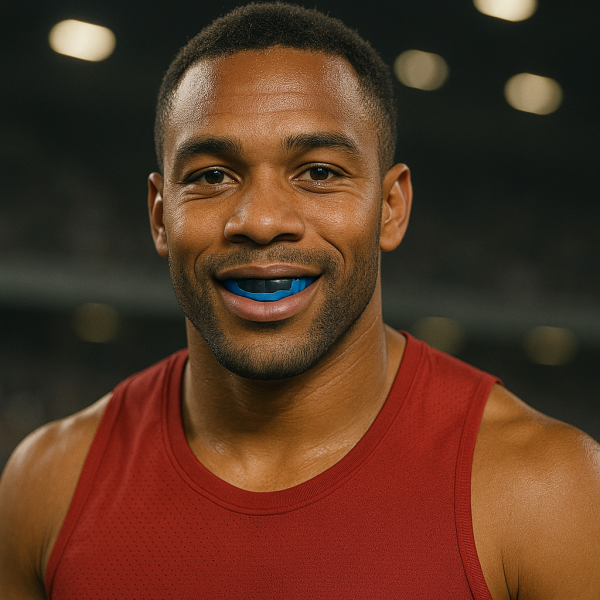Posted: October 20, 2025

Sports Tooth Trauma: Why Teeth Discolor — and How We Restore a Confident Smile
Whether it’s a school game, weekend soccer, or a friendly basketball match, sports accidents can happen in an instant. A blow to the mouth can cause more than a chipped tooth — it can lead to discoloration, pain, and even nerve damage. At Museum Smiles in Fort Worth, we see these injuries often this time of year, especially before the busy holiday season.
Why Teeth Change Color After Trauma
When a tooth is hit, the internal nerve (pulp) can become bruised or inflamed, sometimes cutting off its blood supply. Over time, this can cause the tooth to turn gray, yellow, or dark brown — a sign that the nerve may no longer be healthy.
In mild cases, discoloration fades with time. In others, the pulp may die, requiring root canal therapy to preserve the tooth’s structure and prevent infection.
(ADA: Tooth Color Changes After Trauma)
Treatment Options After Sports Trauma
1. Mild Injuries — Fillings or Bonding
Small chips and enamel cracks are often corrected with tooth-colored composite fillings.
2. Moderate Fractures — Crowns or Onlays
When the fracture extends into deeper layers of the tooth, a crown or onlay reinforces it and prevents further breakage.
(ADA: Dental Crowns)
3. Nerve Damage — Root Canal and Crown
If the tooth becomes discolored or sensitive to temperature and pressure, it may need a root canal followed by a crown to restore function and aesthetics.
(ADA: Root Canal Treatment)
4. Severe Trauma — Extraction and Replacement
In rare cases of extensive root resorption or fracture, extraction may be necessary, followed by options like implants, bridges, or partial dentures.
The Best Defense: Custom Mouthguards
The American Dental Association (ADA) strongly recommends mouthguards for all contact and recreational sports.
A custom-fitted mouthguard provides superior comfort and protection compared to store-bought versions, significantly reducing the risk of dental and soft-tissue injuries.
(ADA: Mouthguards and Sports Dentistry)
Why Timing Matters
After trauma, early evaluation is key. Even if the tooth feels fine, subtle pulp changes can occur over weeks or months. Scheduling an exam before the holidays allows us to:
Monitor vitality and color changes
Prevent infection or internal resorption
Plan restorative care using 2025 insurance benefits strategically
Restore Function and Confidence at Museum Smiles
At Museum Smiles in Fort Worth’s Cultural District, we combine experience, technology, and compassion to restore damaged teeth and protect smiles year-round. Whether you need a custom mouthguard or treatment for a recently injured tooth, our team ensures every visit is gentle, informative, and effective.
Call 817-870-5099 or book online to schedule your appointment today.
Smile bright — play safe — and enjoy the holidays confidently!
About the Author
Dr. Sheri N. Audu, DDS
Dentist, Museum Smiles Dentistry — Fort Worth Cultural District
Dr. Sheri N. Audu is a graduate of the University of Texas School of Dentistry in Houston and earned her undergraduate degree from Baylor University. She has been caring for children and adults for over 15 years, providing restorative, cosmetic, and preventive dentistry with an emphasis on comfort and continuity of care. At Museum Smiles, Dr. Audu focuses on creating healthy, confident smiles that reflect Fort Worth’s vibrant spirit.
References
American Dental Association – Mouthguards and Sports Dentistry
ADA MouthHealthy – Dental Emergencies
ADA MouthHealthy – Root Canal Treatment


